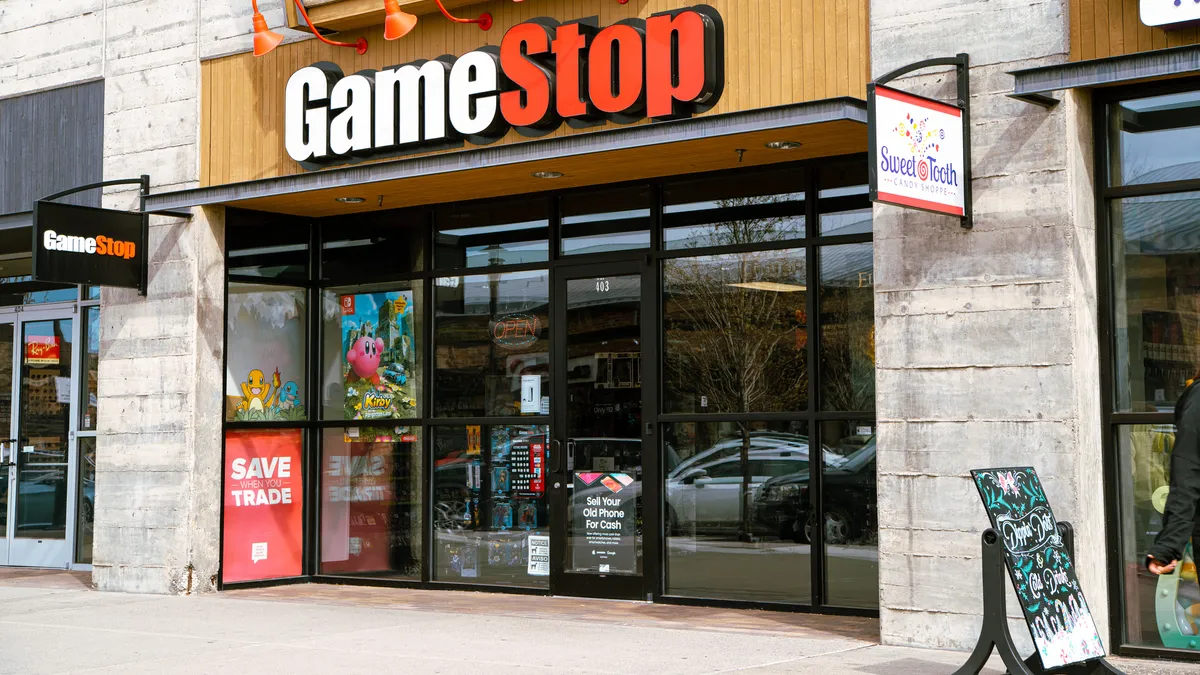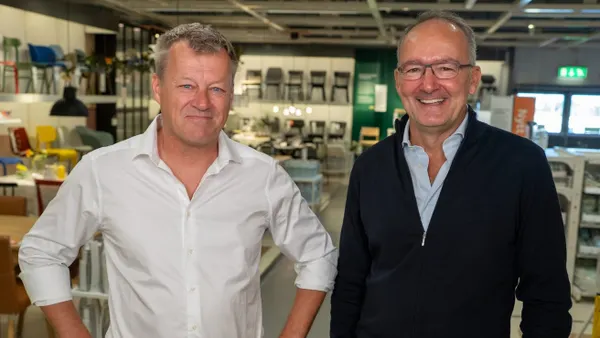Dive Brief:
- GameStop’s net loss in the second quarter widened by more than 75% from a year ago to $108.7 million. Sales, at roughly $1.1 billion, fell slightly from last year.
- The company’s corporate costs fell by 14.3%, after GameStop pivoted quickly to cost-cutting from “a period of significant investment in long-term initiatives,” according to a press release.
- On the company’s earnings call, CEO Matt Furlong referenced cuts to the company’s corporate headcount — after a period in which it hired 600 people — without specifying how many employees were let go. That follows reports of layoffs at GameStop this summer.
Dive Insight:
Furlong detailed the company’s transformation efforts since Ryan Cohen, the Chewy founder turned activist investor, shook up GameStop’s board and executive team starting early last year.
“When our board began turning over early last year, GameStop was saddled with significant debt, decaying systems, limited employee depth and a host of other issues,” Furlong said. The chief went on to say that, after a heavy period of investment, “the upshot is we now have a more diversified product catalog, strengthened fulfillment network, improved tech stack and e-commerce presence, and fortified corporate infrastructure.”
Now that it has invested in those things, the company is “able to start focusing on a new set of priorities that include achieving profitability, launching proprietary products, leveraging our brand in new ways, and investing further in our stores,” Furlong added.
Under Cohen, GameStop has stacked up losses as it invests to reorient around e-commerce, partnerships and technology. That continued through Q2. Furlong said cash outflow from operations was $103.4 million. Jefferies analysts led by Stephanie Wissink estimate that the company will burn around $262 million in cash by the end of the year.
The good news for GameStop is it has cash to burn, for now. The company is essentially debt free, and it ended the quarter with more than $900 million in cash and cash equivalents. That is all thanks in large part to its status as a “meme stock.” After its stock soared in early 2021, GameStop issued new shares that allowed it to pay off its debts and stock the war chest for its transformation.
The details of that transformation have trickled out little by little, with tech hires and new partnerships and offerings, including an NFT exchange and digital wallet for cryptocurrencies. Its latest initiative is a partnership with cryptocurrency derivatives exchange FTX.
While the company adds to its digital offering, Furlong also said its stores remain important to the company as a means of connecting with customers and supporting fulfillment capabilities.
Wissink said that the Jefferies team was “encouraged that profitability improvement goals were set for coming quarters” at GameStop, while also noting that long-term growth prospects “remain a key source of speculation & debate” and that “cash burn remains a concern.”















